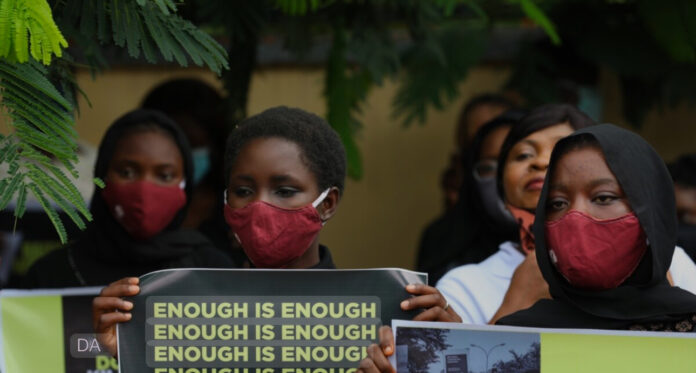The numbers are staggering. In the first months of 2025, gender-based violence in Nigeria has escalated to alarming levels, igniting outrage and urgent calls for intervention. From city centers to remote villages, the headlines tell a grim and familiar story, women brutalized, lives cut short, and justice often slipping through bureaucratic cracks.
Among the most shocking cases is the killing of 24-year-old Emrich Effanga, allegedly at the hands of her boyfriend. What started as another domestic dispute ended in tragedy, leaving behind a grieving family and a nation grappling with difficult questions. Was this preventable? How many more women will suffer the same fate before real action is taken?
Across social media, Nigerians have turned their collective grief into a movement, demanding answers and accountability. Hashtags calling for a state of emergency on gender-based violence have trended for days, with activists reminding the government of its unfulfilled promises to protect women. “We are tired of mourning our sisters,” one user posted, a sentiment echoed in protests across the country.
But this crisis is not new. Women’s rights organizations have long warned of the dangerous cocktail of entrenched patriarchy, weak law enforcement, and an internet culture that continues to normalize misogyny. Legal frameworks exist, but implementation remains patchy at best. For every high-profile case that sparks public outcry, there are countless others that go unreported, hidden behind closed doors where fear and silence reign.
Government officials, under increasing pressure, have pledged renewed efforts to tackle the scourge. Yet, as statements are issued and committees formed, the urgency of the situation demands more than bureaucratic gestures. The National Assembly is now facing demands to push for stronger laws, speedier prosecutions, and better protection for survivors. Meanwhile, grassroots organizations continue their tireless work, sheltering victims and offering them a voice when the system fails.
For many Nigerians, the question is not whether this crisis will end, but how long the nation can afford to look away. Every new case is a reminder that gender-based violence is not just a statisticit is a growing shadow over the country’s future. And unless concrete action is taken, it is a shadow that will only continue to spread.










